It’s been a turbulent decade in Israel — one marked by rounds of conflict and divisive politics as the country heads to a third national election in March
Economically, however, things looked less bleak. The “golden decade” of 2010-2019 was one of strong growth, due in large part to the emerging “Startup Nation,” a term borrowed from the 2009 book of the same name that explored Israel’s culture of innovation and its successes as a tech leader. At the same time, Israel’s cultural offerings in TV, music, and art, found their footing this decade, producing hit television programs, poignant films, and the first Israeli Wonder Woman.
As the new year begins, NoCamels wanted to highlight the people who had a deep impact on the 2010s, shaping the country’s political, business, and art scene. Our list is by no means definitive; there are hundreds of people who’ve made an impression in this country and the world.
Benjamin Netanyahu
Having spent over a decade as prime minister (preceded by another three years as PM in the late nineties), Benjamin Netanyahu is a political phenomenon. While he continues to have many critics, he’s also been described as a “visionary leader” and his opponents and detractors do not deny his service to this nation.
In July 2019, Netanyahu marked 13 non-consecutive years and 128 days in office — one day longer than Israel’s first Prime Minister David Ben-Gurion — by appearing on the Israeli hit comedy show Eretz Nehedert. There he was asked what he will be remembered for as Israel’s longest-serving prime minister. “As protector of Israel’s security,” the PM responded confidently, according to The Times of Israel.
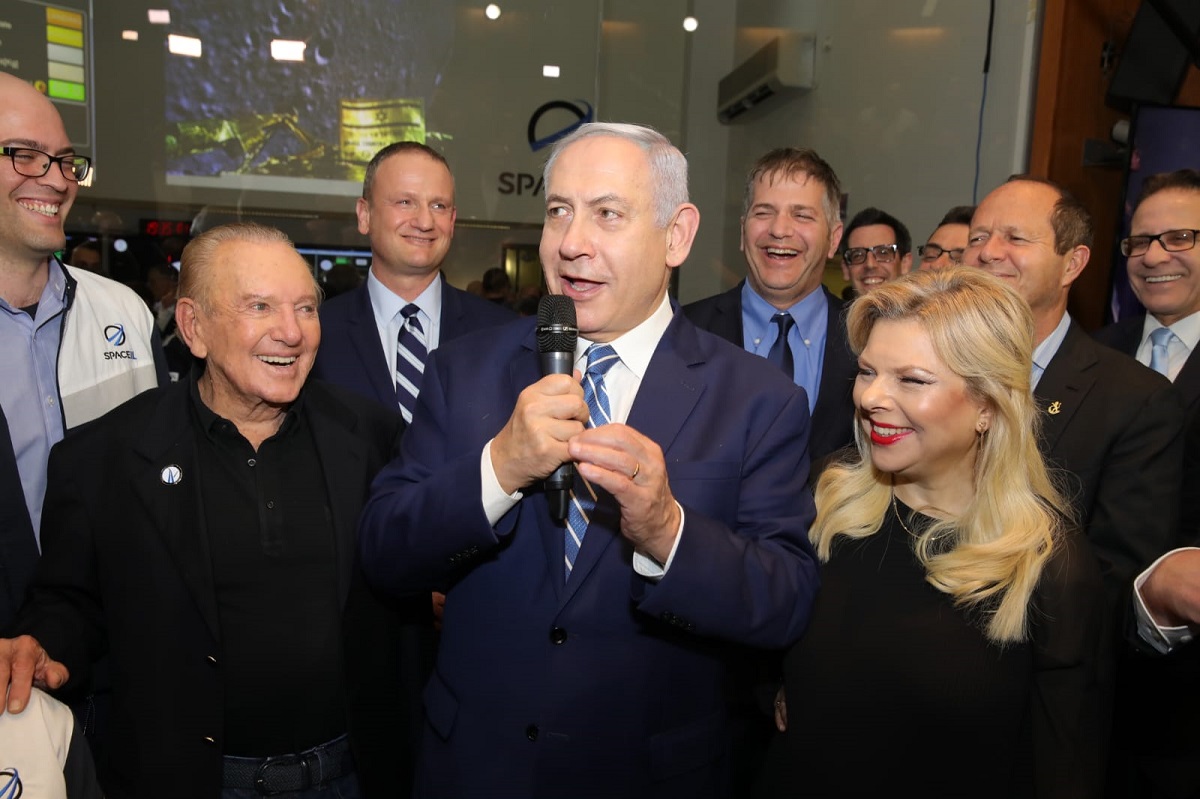
Indeed, Netanyahu has played the security card as a part of his political campaigning for years. He’s seen Israel through a tumultuous time in the region as the Arab Spring unfolded, several military operations including a long summer war in the Gaza Strip in 2014, and has repeatedly touted his strong stance against Iran and the troubled nuclear agreement it signed with world powers in 2015. In recent years, he’s boasted of close ties with US President Donald Trump, Russian President Vladimir Putin, and India’s Narendra Modi.
Economically, Netanyahu has said that “this decade has been a marvelous decade — a decade of growth, of strengthening, of stability, of security, of prosperity.” It’s after all under his tenure that Israel has successfully branded itself the startup nation.
One of Netanyahu’s biggest contributions was his promotion of the Israeli cybersecurity ecosystem which has become world-leading. “We have met the goal I set of becoming one of the top five cybersecurity powers,” Netanyahu declared at Cybertech in 2017.
But there have been indications of trouble. Living and housing costs have skyrocketed in Israel over the past decade; road congestion is a notorious problem; the high-tech sector, the main driver of the Israeli economy, accounts for just under nine percent of jobs; brain drain is said to be on the rise; and labor productivity has remained low for many years.
PPThough he faces a decisive election in the coming months – as well as corruption charges – Netanyahu has been one of the most important figures in Israel this past decade and has shaped the country for many years to come.
Amnon Shashua
For those unfamiliar with the Israeli tech ecosystem, the first time they heard the name Dr. Amnon Shashua was likely when Mobileye, the vision-based autonomous vehicle driver-assistance system he co-founde, was bought by US chipmaker giant Intel Corporation for a whopping $15.3 billion in 2017. The deal became the biggest tech deal in Israeli history.
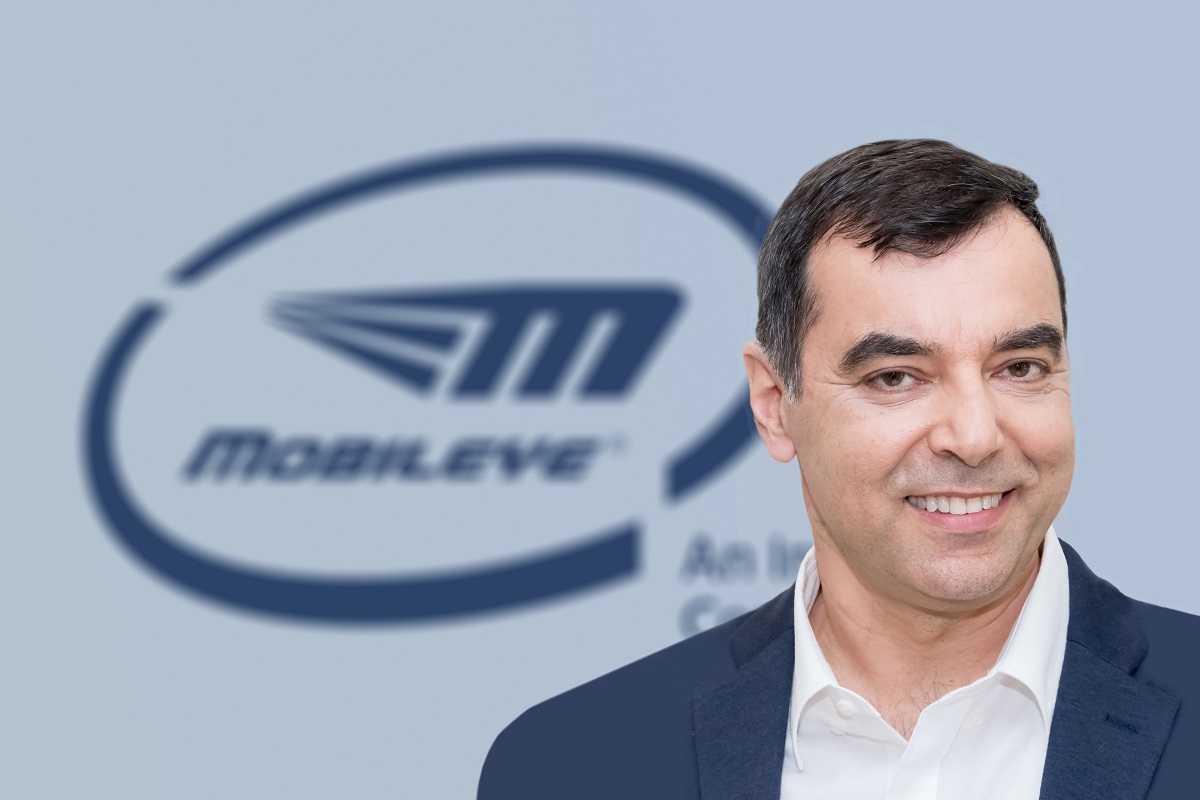
Shashua is now senior VP at Intel. And Mobileye isn’t the only company he has founded that is making a difference.
Eleven years after he co-founded Mobileye with Ziv Avram, Shashua co-founded OrCam in 2010 with the same partner. OrCam took the power of artificial intelligence and computer vision and incorporated it into a product called MyEye, a portable wearable device for the visually impaired, which is the size of a finger and can be discreetly clipped to eyeglasses and sunglasses. The device was named among the “100 best inventions of 2019” by TIME magazine (alongside eight other Israeli innovations).
The game-changing product is so highly regarded that OrCam was valued at $1 billion in February 2018, after completing a $30.4 million funding round that brought its total amount raised to $130.4 million.
Shashua has won a number of honors and awards for his work, including recognition by the Society for Imaging Science and Technology as the Electronic Imaging (EI) Scientist of the Year in 2019. This annual award honors a member of the electronic imaging community who demonstrates excellence by making significant contributions to the field of electronic imaging.
Shashua and his team were recognized for their advanced driver assistance tech making roads safer as finalists at the European Inventor Awards of 2019, awarded by the European Patent Office.
Saul Singer
In late 2009, with a new decade just around the corner, Saul Singer and Dan Senor published the groundbreaking work “Start-Up Nation: The Story of Israel’s Economic Miracle.” The book examined how Israel, a nation that at the time was only 60 years old and had a population of just 7.1 million, was able to reach astounding economic growth with 63 companies on the NASDAQ, more than any other foreign country, according to the Wall Street Journal.
The book, which has since been translated into 30 languages, became a bestseller and introduced the world to Israel’s high-tech and innovation culture. Israel then became synonymous with the “startup nation,” home to more startups per capita than anywhere else in the world.
Singer and Senor are said to be writing another book, due out in the spring of 2021, about the world coming to Israel for new approaches to global problems that require innovative solutions in fields like healthcare, education or the environment, Singer told Israel21c.
Shimon Peres
Former president Shimon Peres, a member of the founding generation of the modern state of Israel, was a “unique figure in the history of the startup nation,” Singer told the Times of Israel soon after Peres’s death in 2016. Peres is the most quoted person in the book.
Though his political career spans seven decades, with stints as prime minister, he was a strong believer in Israel’s tech abilities and as a source of innovation .
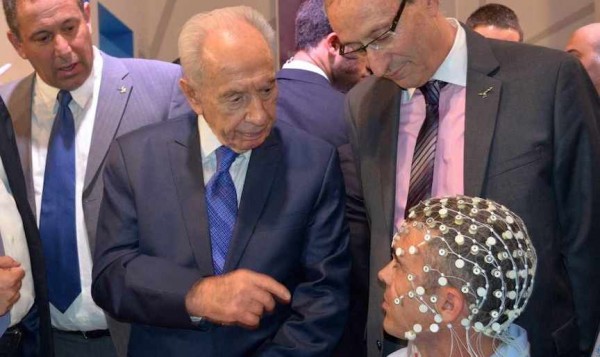
Singer said Peres “played a critical role in helping Israel transition from a socialist, top-down, concentrated economy to a free-market economy focused on innovation.” He also said Peres “spent his whole career in government but thought and acted like an entrepreneur.”
In July 2016, just two months before his death, Shimon Peres laid the cornerstone for the Peres Center for Peace and Innovation, located at the Peres Peace House launched in 1996. The purpose of the center is to bring guests from around the world to Israel to learn about the country’s achievements in the high tech sphere.
Gal Gadot
Gal Gadot was recognizable in Israel after winning the Miss Israel 2004 pageant and working as the head model for popular Israeli clothing label Castro. But she was certainly not a global household name, even as she appeared in bit roles for Fast & The Furious and spoke Hebrew with Mark Wahlberg in the 2010 movie Date Night.
All that changed when she catapulted to worldwide fame for portraying Wonder Woman in the solo film of the same name in 2017 as well as Batman v Superman: Dawn of Justice and Justice League.

Wonder Woman alone grossed more than $800 million at the box office worldwide, making it the 5th highest-grossing US superhero movie of all time.
Gadot became one of Hollywood’s top actors, earning a spot on TIME magazine’s annual list of the 100 most influential people in the world in 2018 and was listed among the highest-paid actresses in the world.
Gadot was the third most searched person on Google in 2017, according to a global Google Trends report.
A mother of two, she is currently co-producing two films with husband Jaron Varsano, and can safely say she is now a recognizable face in most households.
In early 2018, she became a Global Ambassador for makeup brand Revlon’s Live Boldly campaign and noted the company’s ideals line up with her own. She has also appeared in commercials for Chinese tech company Huawei, the third-largest phone maker in the world. Gadot also bagged a sponsorship deal with US athletic apparel maker Reebok worth $10 million.
Gadot’s much-anticipated Wonder Woman 1984 sequel is set to hit theaters in the summer of 2020.
Dr. Erel Margalit
Dr. Erel Margalit is one of Israel’s leading social and tech entrepreneurs. His VC firm Jerusalem Venture Partners (JVP) marked its 25th anniversary in October 2019. The company, which he founded in 1993, has invested in and built over 140 companies and has overseen 35 successful exits including 12 NASDAQ IPOs with a total transaction value in excess of $20 billion.
“Over the past 25 years JVP has spearheaded revolutions that have shaped Israel into a global tech leader,” Dr. Margalit said at the time. “Looking to the next 25 years, our goal is to ensure Israeli startups become global market leaders. We know that if innovation can change a country like Israel, it can change a region, and serve as a bridge to the entire world.”
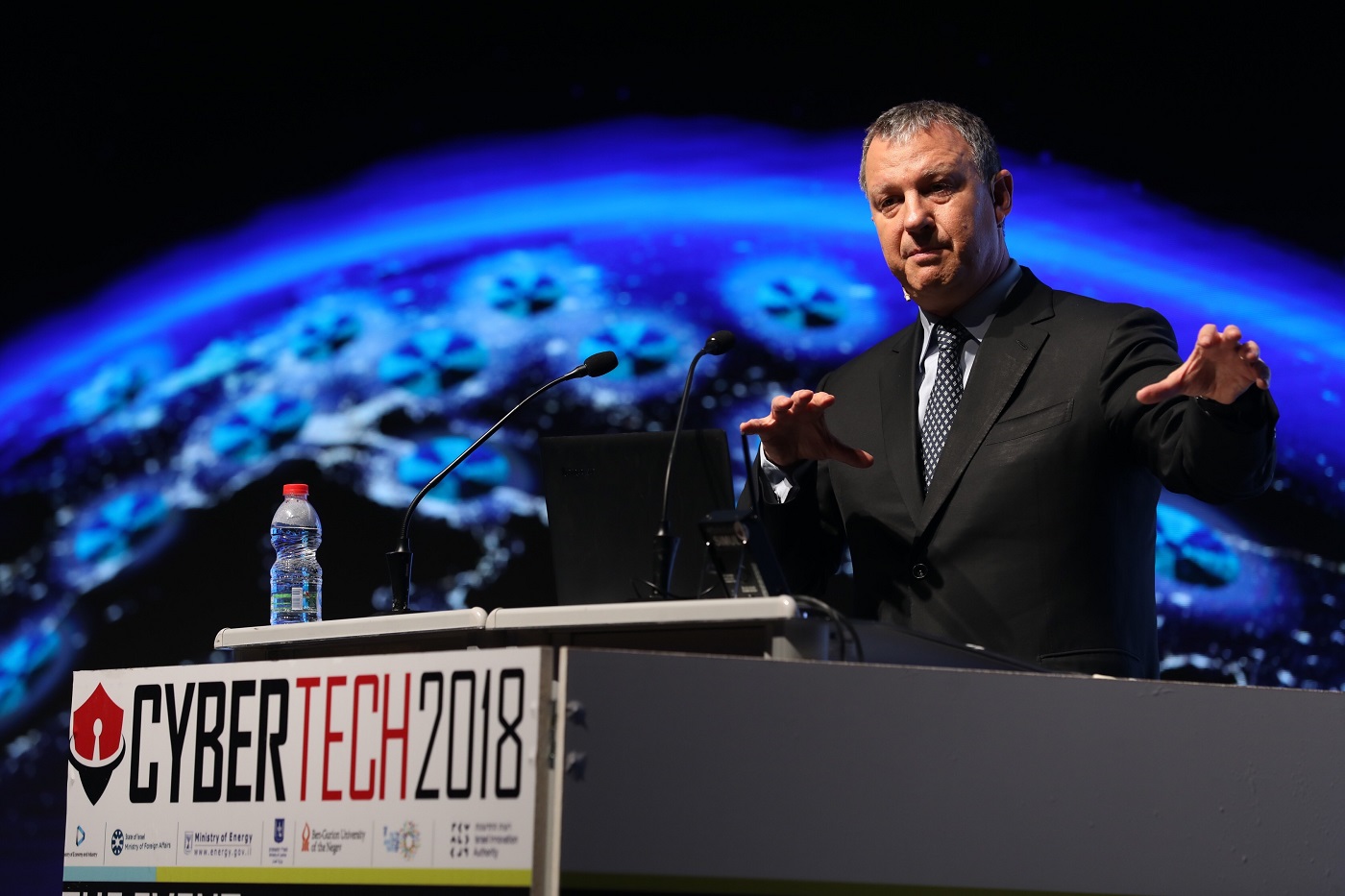
Margalit pursues “innovation diplomacy,” creating bridges with world countries and with Israel’s traditionally hostile neighbors through Israeli know-how and technology. He spearheads the Innovation Initiative for the Mediterranean Basin countries, engaging 14 Arab countries on projects around innovation and cybersecurity cooperation in the Euro-Med region, according to his bio. He served in the government as a Knesset member for the Labor party in 2015-2017.
Under his leadership, JVP was voted as one of the top venture capital firms in the world in 2012, according to PeHub, an online forum for the private equity community. In 2018, Preqin, a leading source of information for the alternative assets industry, ranked JVP sixth in the world for Most Consistent Performing Venture Capital Fund Managers, as part of the 2017 Preqin Alternative Assets Monitor.
In July 2018, JVP partnered with the Israeli Ministry of Economy and Industry to establish a food tech accelerator in Kiryat Shmona, an area not usually identified with a significant tech scene. And in Haifa, Margalit is involved in the establishment of an international digital health center. These initiatives are part of Israel Initiative 2020 (ii2020), Margalit’s vision to create dynamic centers of excellence in seven regions throughout Israel with the goal of raising the standard of living and attracting young professionals and new families while also developing a regional ecosystem.
In 2018, JVP launched JVP Play, a program that connects between early-stage Israeli startups and leading multinational companies, and was selected to establish New York’s first international cybersecurity investment and innovation hub.
In November 2019, Israel’s Mellanox Technologies and JVP were part of a group that won a tender by the Israeli Innovation Authority to develop Haifa’s tech and innovation ecosystem with an investment of NIS 50 million ($14 million) over the next four years. Mati Haifa, an innovation center that nurtures Haifa-based startups in development and ii2020, the NGO led by Margalit, were also part of the group that formed ILAB group.
Professor Dan Ariely
Prior to the start of the decade, the theory of behavioral economics, the attempt to integrate a psychologist’s understanding of human behavior into economic analysis, was a concept that was studied in academic circles.
It wasn’t until the success of books such as Israeli-American Dan Ariely’s “Predictably Irrational: The Hidden Forces That Shape Our Decisions,” first published in 2008, that the idea of behavioral economics really began to catch on with a broader audience. The book challenged readers’ assumptions about making decisions based on rational thought, by noting how different people repeated the same mistakes.
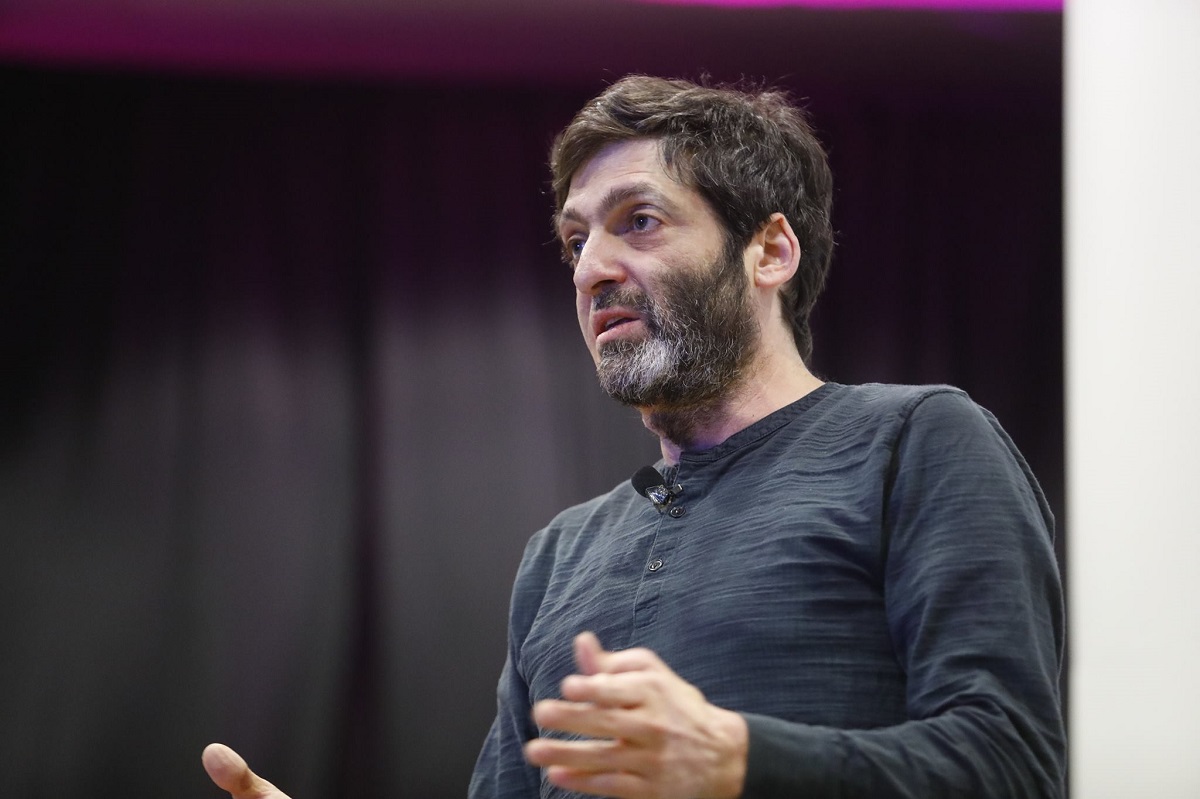
“I became engrossed with the idea that we repeatedly and predictably make the wrong decisions in many aspects of our lives and that research could help change some of these patterns,” he has written on his official website.
Ariely, who was born in New York, and moved to Ramat HaSharon when he was three, is the author of three New York Times bestsellers and a number of other books. He has given TED talks that have been viewed over 15 million times. In 2018, Ariely was named of the 50 most influential living psychologists in the world.
Among other prominent roles, Ariely is the founder of the research institution The Center for Advanced Hindsight, co-founder of companies like Kayma and the Chief Behavioral Officer of Israeli-founded firm Lemonade, which relies on behavioral economics to guide its insurtech platform.
Dr. Orna Berry
Dr. Orna Berry has been dubbed the “first lady of Israeli high-tech,” for being Israel’s first and (so far) only female chief scientist for the Ministry of Economy and Industry-backed Israel Innovation Authority. She served in the role in the late 90s.
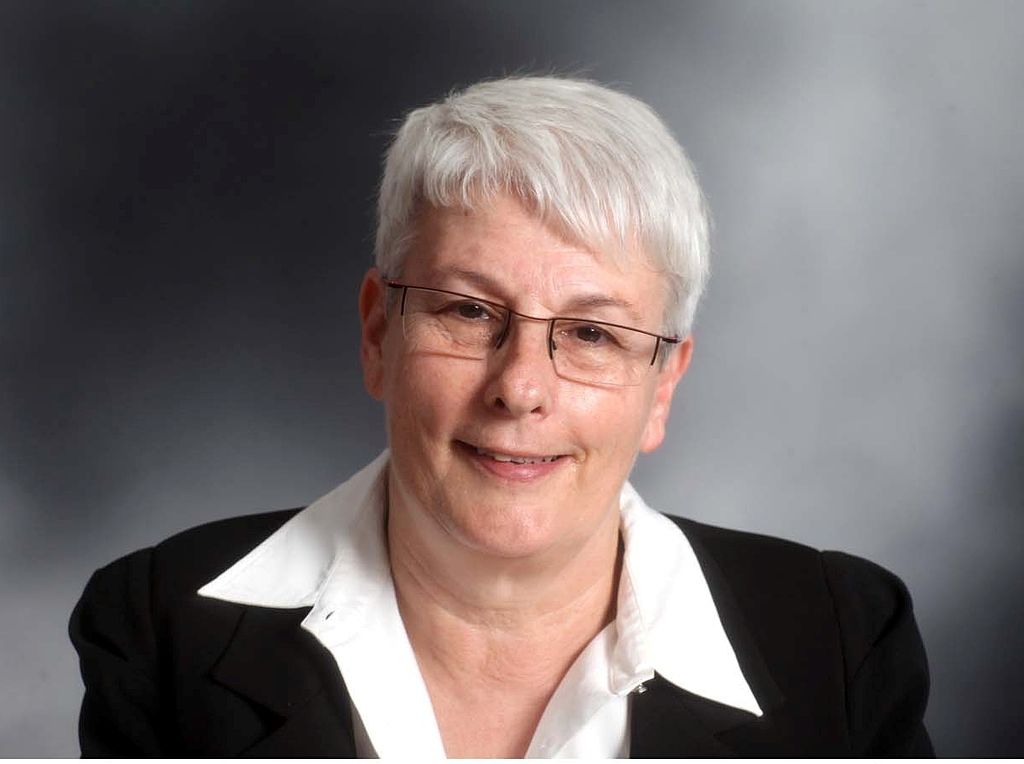
Berry is also an acclaimed computer scientist, a high-tech entrepreneur, and a senior executive with over 30 years of experience. She’s been called “one of the leading pioneers who has struggled over the years to shape the path for women.”
Berry has also held a wide range of important positions throughout her career. She co-founded Ornet Data Communications Ltd., a company later acquired by Siemens, served as the Chairperson of the Israel Venture Capital Funds Association, and was a Venture Partner at Gemini Israel Funds.
Berry has been the recipient of various awards, including the “WITI Hall of fame” award by WITI Women in Technology International; the “Yakirat Ha’Negev” award from Ben Gurion University, for establishing an EMC R&D branch in the heart of Israel’s desert; and the Viterbi Award from the University of Southern California (USC) for integrating entrepreneurship with professional excellence.
In 2018, she announced her retirement as corporate vice president and general manager of research and development for Dell EMC in Israel after eight years.
Jon Medved
Jon Medved, a serial entrepreneur, venture capitalist, and angel investor, is the CEO and founder of OurCrowd, Israel’s leading equity crowdfunding platform set up in 2013. OurCrowd announced in March 2019 that it had raised a total of $1 billion for 170 companies and 18 funds in just six years. Of those portfolio companies, at least 29 had already achieved an exit with some of the most prestigious brands in the world including Uber, Oracle, Nike, and Intel.
“Five years ago, getting to $1 billion in equity crowdfunded assets was but a dream,” Medved said in 2018.
While Medved is based in Jerusalem, OurCrowd has additional offices in Tel Aviv, San Diego, New York, Toronto, London, Hong Kong, Taiwan, Singapore, and Sydney. The community itself has some 30,0000 investors from over 183 countries and has funded companies in Israel, USA, India, Canada, UK, Hong Kong, and more.
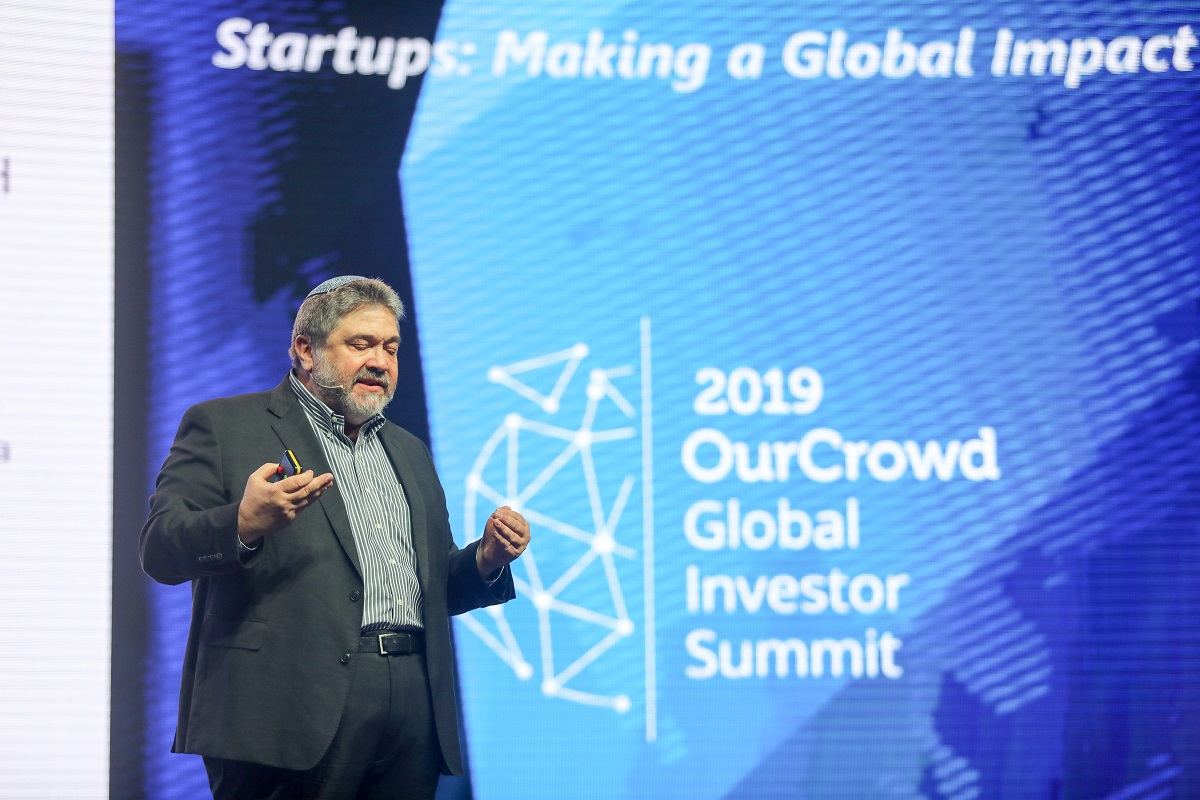
In March 2019, Pitchbook named OurCrowd to its list of top 10 VC investors in Israel for the second year in a row.
At the pinnacle of OurCrowd’s success is its annual OurCrowd Global Investor Summit, where Medved is always front and center. At the fifth annual convention in 2019, OurCrowd welcomed 18,000 guests from over 180 countries around the world.
In their book “Start-up Nation” authors Singer and Senor describe Medved as “one of Israel’s legendary business ambassadors” and indeed, Medved is no stranger to speaking on behalf of Israel’s tech scene and its successes on podcasts, in publications, and on television.
Michael Solomonov
While other Israeli chefs have tried before him, Michael Solomonov has been credited with bringing authentic Israeli cuisine to the United States and being recognized for it across the globe.
Solomonov has won four awards by the prestigious culinary organization The James Beard Foundation, whose annual prizes are considered the Oscars of the restaurant industry. One of those awards, for the “Outstanding Restaurant” prize, was handed to him just this year for his popular and celebrated restaurant Zahav.

Oz wrote about his family’s aspirations in his coming of age memoir “A Tale of Love and Darkness” set against the backdrop of the birth of the modern state of Israel, which in 2015 was made into a movie starring US-Israeli actress Natalie Portman.
The prestigious work of the novelist, journalist, and intellectual was known long before the start of the decade. Oz has penned over 40 books including 14 novels, five collections of short stories, two children’s books, and 12 books of articles and essays, that have been published in 45 languages.
Oz, who was called a “literary giant” by Israeli President Reuven Rivlin upon news of his death, left home at age 14 to join a kibbutz after the death of his mother. After his army service, he became an early advocate of a two-state solution to the Israeli-Palestinian conflict following the the Six-Day War. Oz became an outspoken lecturer and writer about many political and economic issues facing the country.
He’s received a number of honors and awards for his fictional and non-fictional work, including the Legion of Honour in France, the Israel Prize, the Goethe Prize, and the Franz Kafka Prize, among others.
Netta Barzilai
Netta Barzilai, the now 26-year old musician from Hod Hasharon, clucked her way into our hearts when she won the 63rd annual Eurovision Song Contest for Israel in 2018 in Lisbon, Portugal. Her empowerment anthem “Toy” was not only a catchy hit, but it was also a song inspired by the #MeToo movement, with confident and brashy girl power lyrics like “Wonder Woman don’t you ever forget / You’re divine and he’s about to regret.”

Barzilai became a superstar in Israel and around the world after winning the contest, earning Israel its 4th victory in the competition since its debut in 1973. She also brought the Eurovision contest back to Israel for the first time in 20 years, since Dana International won for her song “Diva” in 1998. Her win earned her a phone call from Netanyahu who called her Israel’s “best ambassador.”
One year later, Netta opened the 64th annual Eurovision Song Contest final in Tel Aviv, performed at one of Ukraine’s largest music festivals, Atlas Weekend (to a crowd of a record-breaking 538,000 people) and sang duets with Israel’s most popular artists like Omer Adam.
Lior Suchard
The self-proclaimed mentalist providing “supernatural entertainment” has performed all over the world for a decade and can count celebrities like Kim Kardashian and Kanye West, former President Bill Clinton, and even Barbara Streisand as fans.
The Haifa-born mindreader’s blend of magic and comedy has wowed fans in Israel, Russia, India, Australia, and the USA.

Suchard has had quite a decade as a world traveler, but he too got in on Israel’s booming startup ecosystem. This year, he became a brand ambassador for Temi, the world’s first intelligent, mobile, personal AI robot. The robot was developed by Israeli startup Robotemi in 2015 and has won a number of prestigious awards including first place in the field of robots and drones at the Shanghai CES Asia 2019 Exhibition
Suchard has said he plans to incorporate Temi into his live performances.
Uri Levine
Uri Levine is an Israeli serial entrepreneur best known for co-founding Waze, the wildly popular GPS navigation software app.
Founded in 2007, Waze was acquired by Google in June 2013 for $1.1 billion. Levine decided to leave the company where he served as CEO from 2008 to 2009 and later as president, after its exit to build new startups. He has since built startups like Refundit and FairFly, and is a board member for Israeli public transportation app Moovit, global open-location platform HERE Technologies, and agritech insights startup SeeTree.
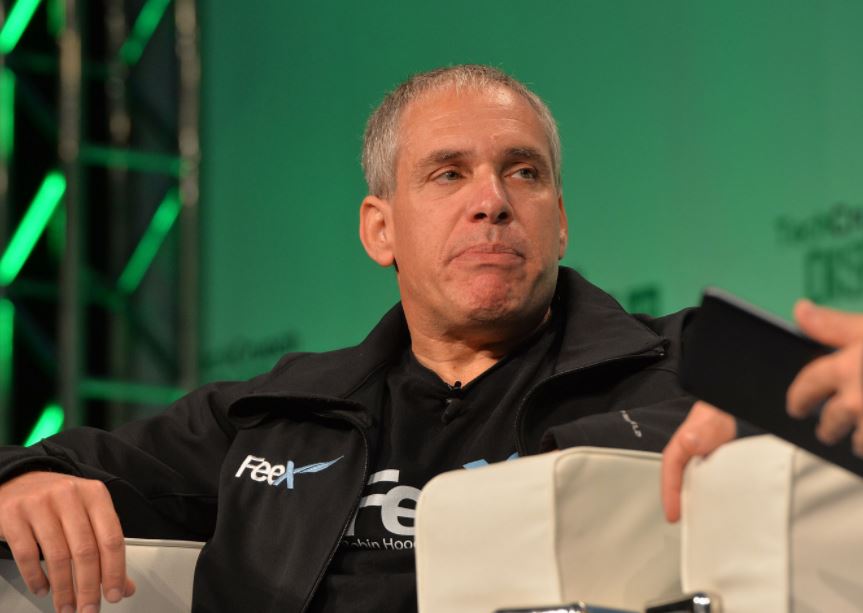
At an Israeli Entrepreneurship Conference at the Technion – Israel Institute of Technology in Haifa in 2013, Levine shared secrets of the company’s success as it was pitched to investors.
“We did some intelligence work and found out where they each live. We made sure all their houses were on the Waze map. At the start of the meeting, one of the investors inevitably asked, ‘Are you trying to tell me that I will find my house on your map?’”
His house popped on the map, his eyes widened, and “I could see dollar signs in them,” Levine told the audience.
Perhaps it is this smart and endearing way of connecting with investors, entrepreneurs and audiences that have helped Levine find his calling.
“Since that time, I have actively pursued my dream to create great value for large audiences, through the series of startups I founded,” he wrote on his personal website, adding that his vision is “to disrupt inefficient markets” as well as save consumers time and money, while empowering them.
Gil Shwed
Gil Shwed, an Israeli software engineer, inventor and entrepreneur,
is considered the inventor of the modern computer firewall. More specifically, he invented and patented stateful inspection, which served as the basis for the first version of the company’s FireWall-1, released in 1994. Stateful inspection is still used widely in network firewalls today.
Shwed began studying computer sciences at the Hebrew University of Jerusalem while he was still in high school. During his military service, he was part of the elite IDF Intelligence Corps’ Unit 8200. After his service, he joined the Israeli startup Optrotech (now Orbotech) where he worked as a software developer.
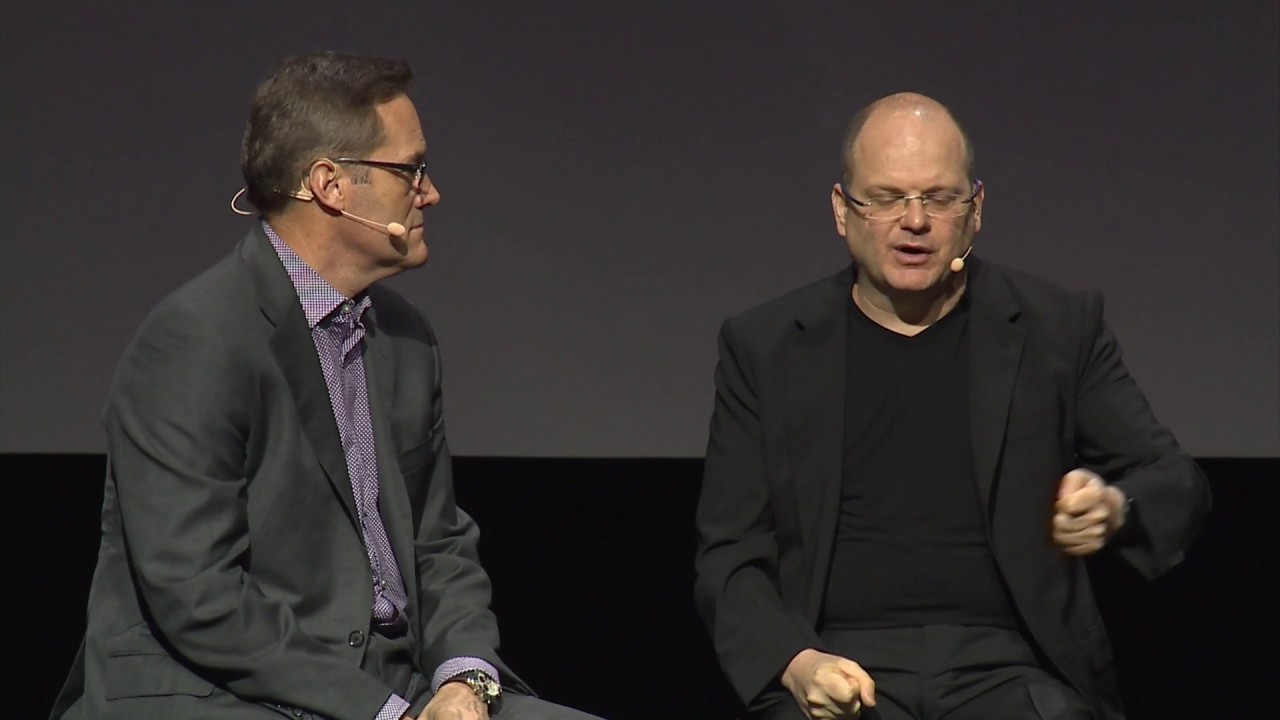
Shwed co-founded Check Point Software Technologies with Shlomo Kramer and Marius Nacht in 1993. He is currently the company’s CEO and director. Throughout the decade, NoCamels has reported on a number of security breaches found by Check Point. In late 2016, the company found a breach in 1 million Google accounts, considered one of the largest security breaches in history. They worked with Google to fight the cyber attack.
Israeli daily Globes named Gil Shwed it’s “Person of the Year” in 2014. He was also on The Marker’s magazine’s list of Israelis with the most influence on the local economy.
In 2018, the Check Point CEO was announced as the recipient of the first-ever Israel Prize for innovation and high-tech. Then Education Minister Natali Bennett, who initiated the award, congratulated Shwed on Twitter.
Gil Shwed is a pioneer of the Startup Nation, Mr. Bennett wrote, as reported in NoCamels. “His story is the story of the Israeli tech sector. As a graduate of the Israeli military’s Unit 8200 who went on to found Check Point, he paved the way for me, and for thousands of other Israeli tech entrepreneurs.”
Navonel Glick
IsraAID, the Israel-based non-governmental organization that responds to emergencies all over the world with humanitarian help, has done so much good this decade. From large-scale disasters, including the 2015 Nepal earthquake and the 2011 earthquake and tsunami in Japan to long-term support to communities during the 2017 Hurricane Maria in Puerto Rico, IsraAID has worked in emergency and long-term development settings in more than 50 countries.

Navonel Glick, the co-CEO of IsraAID with Yotam Polizer, is committed to providing life-saving emergency relief and solutions for populations affected by natural disasters, epidemics, and post-conflict situations.
“I’d like to think we are helping people help themselves, so that when we have to leave, they are stronger and more capable than they were before we arrived,” he told From The Grapevine in 2017 when he was just 30 years old. “I know it’s a corny proverb, but I think about the idea that you don’t give them a fish, you teach them how to fish.”
Glick, who initially intended to become a doctor, was awarded the Muhammad Ali Humanitarian Award for Spirituality in 2016 and was part of the second annual Forbes 30 under 30 list chosen by Forbes Israel.
While Glick stopped doing fieldwork years ago, according to the Jewish Standard, he continues to play an integral part of a non-profit organization that is making the world a better place.
Adam Neumann
Adam Neumann, the co-founder behind WeWork, the shared co-working space giant that later spawned WeLive, the co-working space WeGrow, the private children’s school, and just plain We Company, once told Israeli newspaper Yediot Aharonot (Hebrew) that he co-founded WeWork with Miguel McKelvey with the intention of replicating the feeling of togetherness and belonging he felt in Israel and he thought was lacking in the US.
Neuman, who grew up on a kibbutz and used some of the ideas of that communal living space’s ideals when dreaming up his company, subsequently built an empire and by 2018 he was nominated to TIME magazine’s 100 Most Influential People for that year.
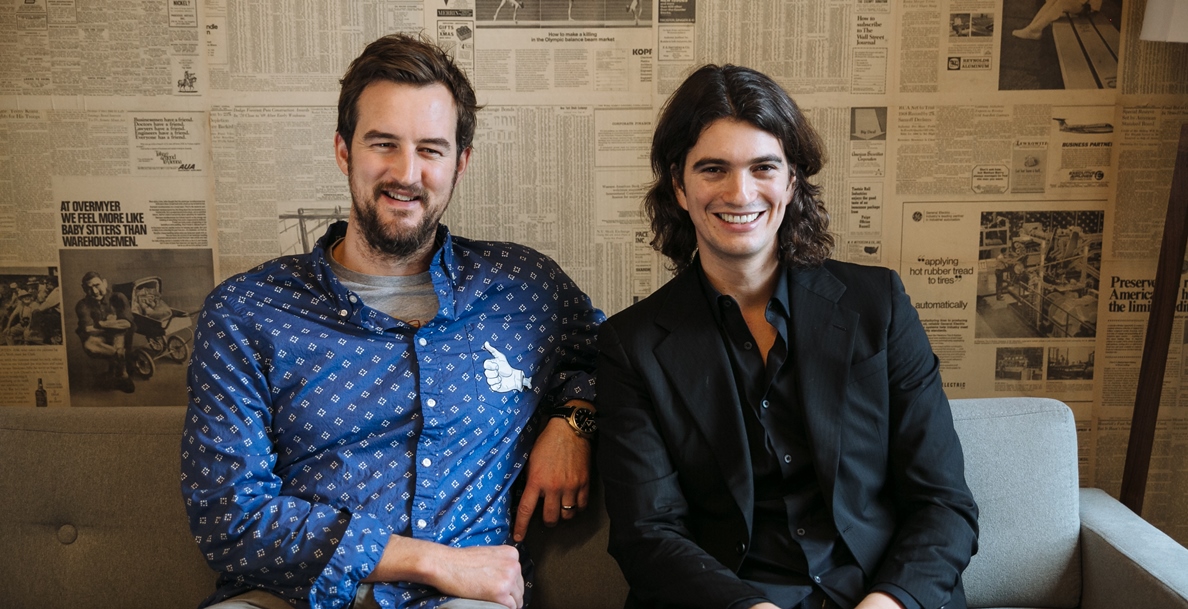
“With collaborative workspaces, startup incubators, gyms and housing, Adam is revolutionizing the way we work and reimagining how we live,” Marc Benioff, the chairman and CEO of US cloud computing company Salesforce, wrote of Neumann at the time.
WeWork was founded in 2010 and by early 2019 was evaluated a whopping $47 billion, with more than 400,000 members in 100 cities across 27 countries.
But at the tail end of 2019, things hit a tailspin. An IPO, initially expected in September, was postponed after it was estimated that the valuation was a third of the initial sum, and this scared investors. Then, the Wall Street Journal published a report detailing alleged strange behaviors on the part of Neumann and speculations that the company’s biggest investor, SoftBank, was looking to move him out of a leadership role. Other investors also criticized WeWork’s governance, business model, and its ability to be profitable.
Softbank eventually announced a deal to buy some 80 percent of the ailing shared office space startup, confirming reports that the Japanese financial giant would essentially be taking control of the firm. As part of the deal, Neumann would become a board observer and would be paid $1.7 billion to leave his leadership role.
WeWork is still a unicorn, with a sizeable valuation of at least $8 billion.
